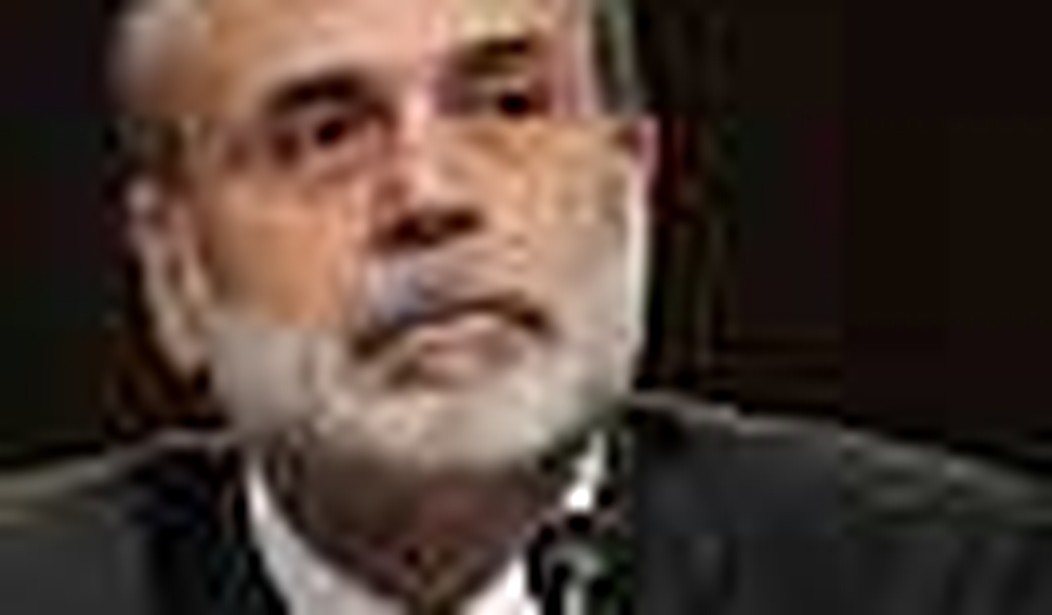Three cheers for Andrew Cuomo! No, honestly. He’s taken a break from extorting AIG execs to give up their bonuses to expose a far more frightening extortion plot: the effort by former Treasury Secretary Hank Paulson and current Fed Chairman Ben Bernanke to force Bank of America to go through with the Merrill Lynch deal — and conceal the mammoth losses from the shareholders. The Washington Post reports
Legal experts say the SEC could go after federal officials for aiding and abetting if they did in fact tell [Bank of America CEO Ken] Lewis to keep mum on Merrill’s mounting losses, but that it is the bank’s obligation to inform shareholders of decisions that could materially affect the firm’s fortunes.
Lewis said he was instructed to not make a public disclosure about potential government financing. When asked where that instruction came from, Lewis responded: “Paulson.”
Paulson and Bernanke are denying that they told Lewis to conceal the impact of the deal from shareholders. Cuomo has 100 pages of documentary evidence and quite a bit of testimony on the subject. We’ll find out who said what to whom soon enough.
But this sordid little deal gives us some insight into the entire modus operandi of government which took hold at the end of the Bush presidency and has ramped up during the Obama administration. How is the Bank of America maneuver any different than “Take the TARP money or else”? Or “No, you can’t give back the TARP funds”? Or “Fire Rick Wagoner or else”? The Bank of America deal has the added element of deceiving the shareholders, but the pattern of conduct, the bullying of private industry (without regard to legal and ethical obligations to shareholders) by the federal government is the same.
In the absence of legislative authority or published regulatory guidelines, we now have government-by-strong-arm. The most unseemly example may have been the AIG bonus frenzy in which Congress, egged on by the president, decided that employment contracts don’t matter if the mob howls loudly enough. The notion that we are a nation of laws that apply in all situations and without regard to the whims of individual government functionaries is coming under fire like never before in our nation’s history. In the guise of tending to an economic emergency, the Treasury secretary, fed chairman, and president roam the economic landscape making up rules, reneging on deals (are we including toxic asset buying firms in the TARP compensation rules or not this week?), and encroaching further and further on the day-to-day management of what used to be private firms.
There is no excuse legally or otherwise for private industry executives to give into such tactics when they think their companies may suffer as a result. Nevertheless, one can understand why they do it. It is not easy to stand up to bullies who are threatening to pull the plug on financing or who have the power to stress-test you into bankruptcy. But it is unseemly behavior and something I suspect the public won’t like one bit once they understand the magnitude of the bullying.
And there are indications that the public is wary of this sort of thing. Most polls show that they hate bailouts, which is generally the source of the government’s power to browbeat firms. And as David Brooks observed:
The crisis has not sent Americans running to government for relief. Nor has it led to a populist surge in anti-business sentiment. In a recent Gallup poll, 55 percent of Americans said that big government is the biggest threat to the country. Only 32 percent said big business. Those answers are near historical norms.
Americans have always been skeptical of activist government, and that skepticism remains. When Gallup asked specifically about the current crisis, 44 percent of Americans said they disapprove of an expanded role for government during the crisis; 39 percent said they approve of an expanded role but want it reduced when the crisis is over; and only 13 percent want to see a permanently expanded role for government.
So it may be that as they learn the magnitude of the government’s meddling — and the details of the government’s newfound willingness to not only expand but to threaten, cajole, and extort businesses — the public may recoil.
More importantly, after getting a glimpse of this, Congress may want to re-establish the lawmaking and oversight role which it has temporarily abandoned. For a group that railed against the Bush administration’s overreaching vision of the executive branch, there has been deafening silence about the Obama administration’s brazen willingness to act with no appropriation of funds or regulatory authorization from Congress. Congressional Republicans in particular may want to get cracking on some regulatory reform, which would not only set reasonable rules for business but restrain the excesses of the executive branch. If given the choice between some new regulatory framework for government agencies or letting the Bernanke-Geither-Obama crew prowl through American industry firing executives and forcing deals at will, Republicans may decide the former is infinitely more desirable.
In the meantime, kudos to Cuomo, who may have uncovered the biggest and most dangerous racket of them all — the Obama economic team. And please buckle up. We have never seen an investigation of this type before involving a chairman of the Federal Reserve. It will, I think, prove extremely illuminating. It also may possibly complicate the Obama administration’s effort to micro-manage the economy. Once the public figures out what the government is up to, they might decide that bullying private industry isn’t the “change” they had in mind.









Join the conversation as a VIP Member